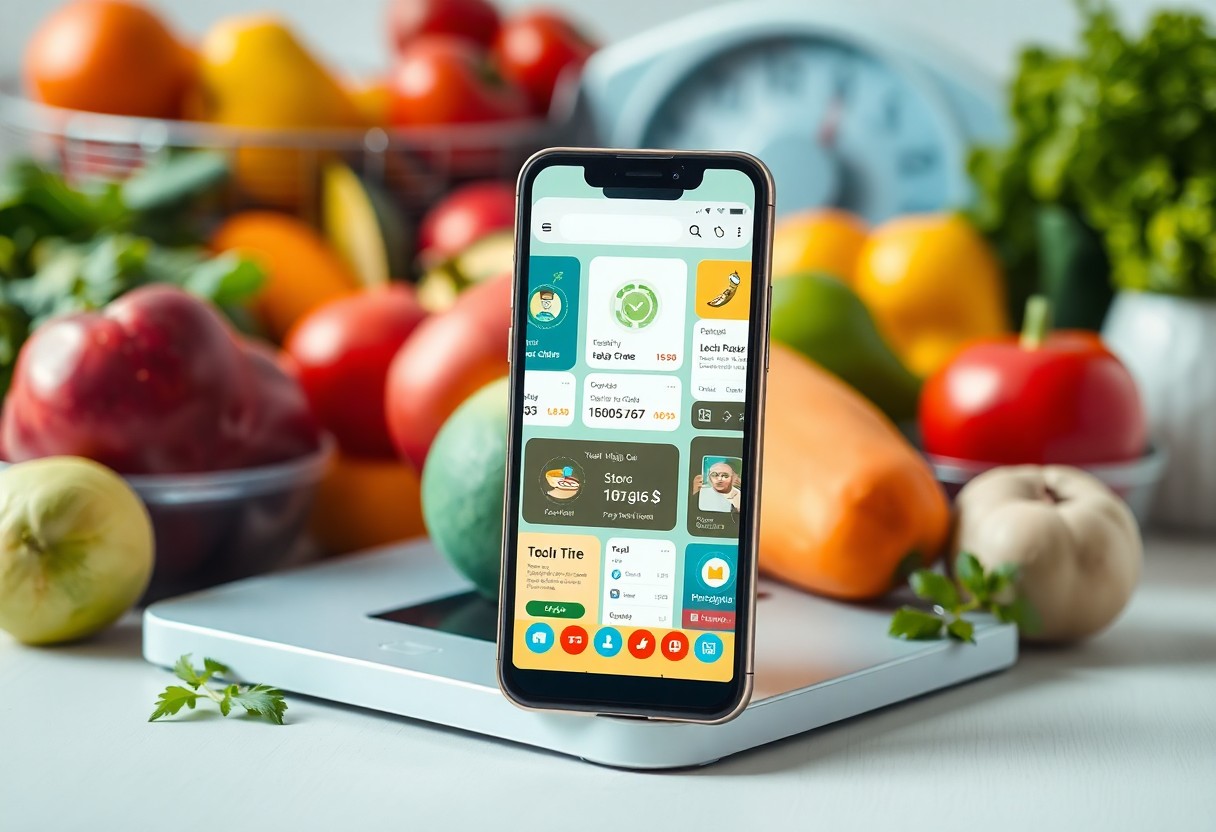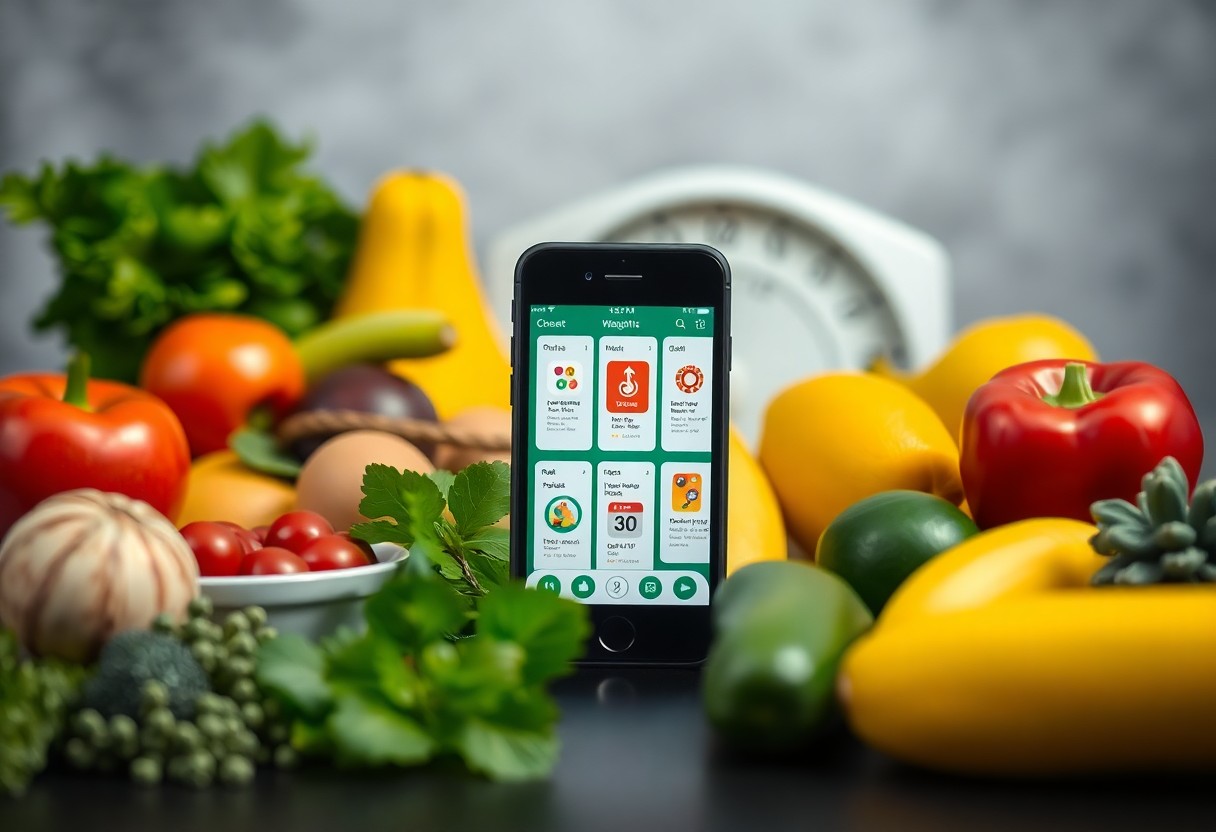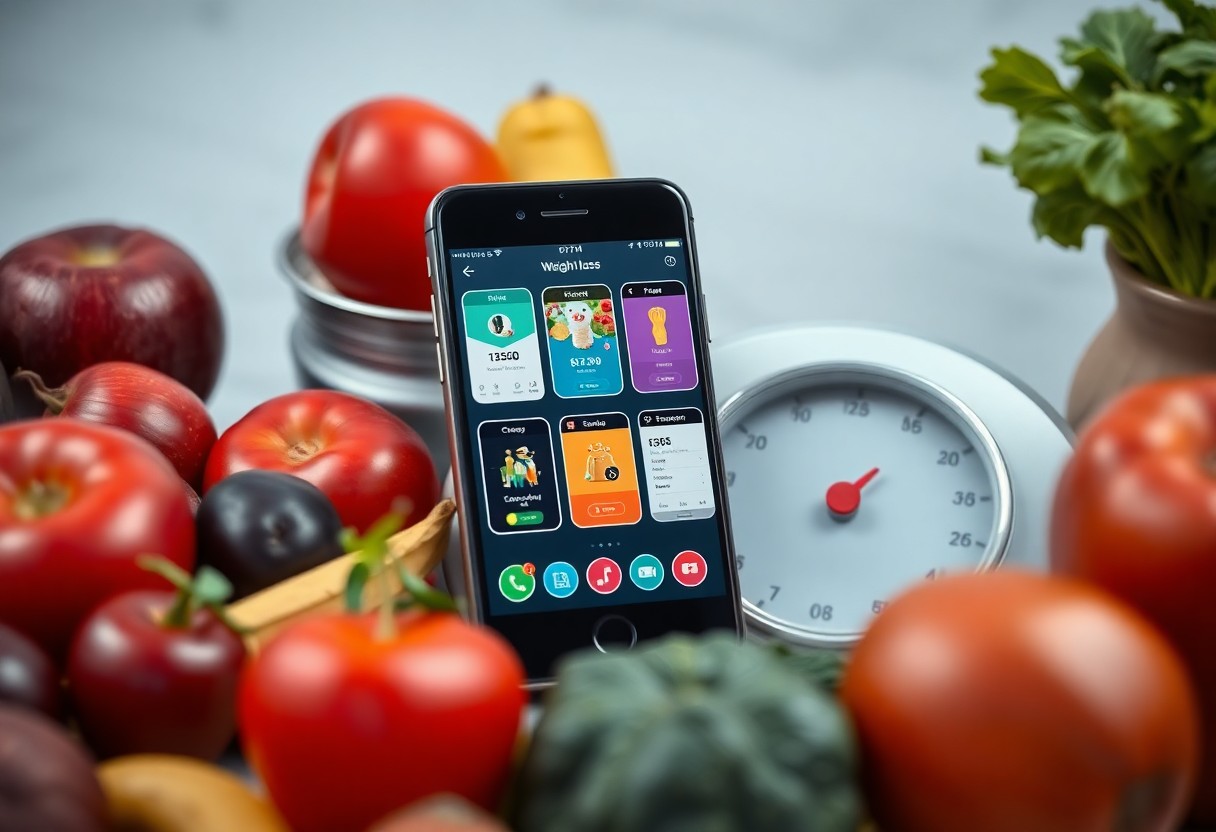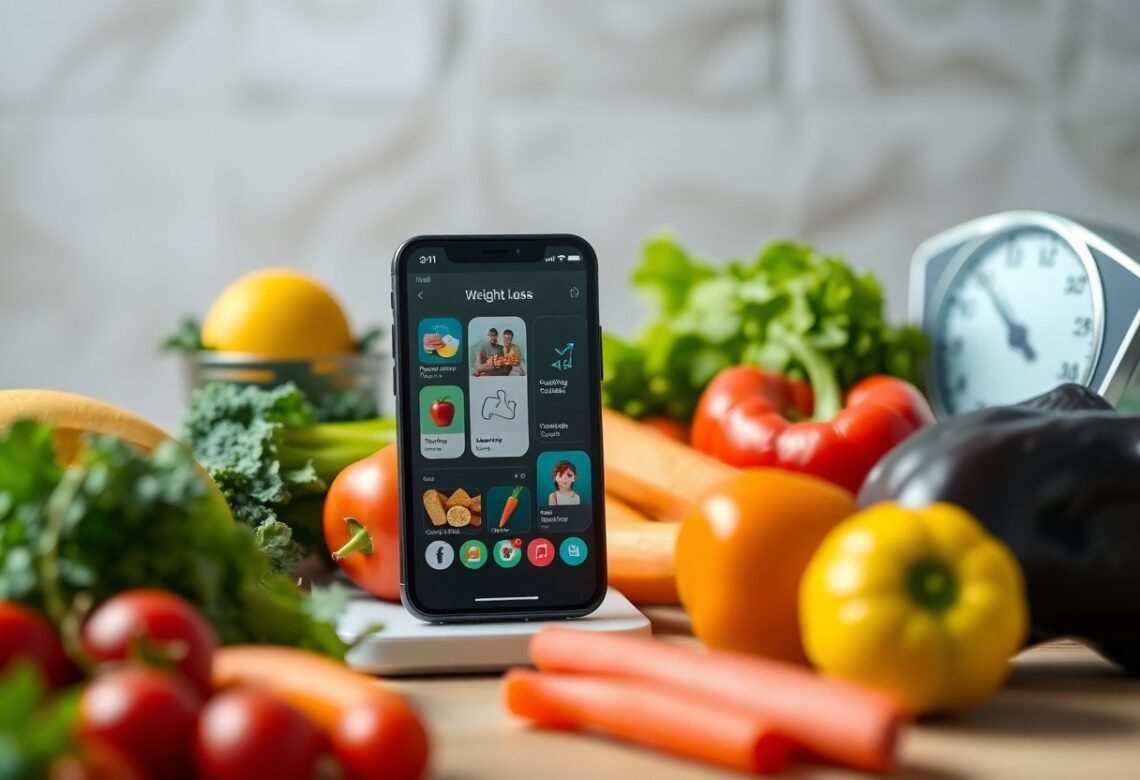There’s a multitude of weight loss apps available, each promising to help you shed those extra pounds, but how do you choose the right one for your needs? In this comprehensive guide, you’ll compare popular apps based on features, usability, and effectiveness, empowering you to make an informed decision that aligns with your weight loss goals. Whether you’re looking for meal tracking, exercise routines, or community support, this guide will help you navigate your options and find the app that fits seamlessly into your lifestyle.
Key Takeaways:
- Functionality: Different weight loss apps offer various features such as calorie tracking, exercise logging, and meal planning, making it important to find one that meets your specific goals.
- User Interface: A user-friendly interface can significantly enhance the experience, leading to better adherence to your weight loss plan.
- Community Support: Many apps provide access to online support groups, which can foster motivation and accountability among users.
- Customization: Look for apps that allow personalized meal and exercise plans tailored to individual preferences and dietary needs.
- Cost: Some apps are free, while others require a subscription fee; evaluate the cost against the features offered to determine value.
- Integration: Compatibility with other health and fitness platforms, like fitness trackers or health apps, can enhance functionality and tracking efficiency.
- Progress Tracking: Effective apps include tools for tracking your weight loss journey, allowing you to visualize progress and stay motivated.

Types of Weight Loss Apps
While exploring options for weight loss, you’ll find several categories of apps that cater to diverse needs. Here’s a quick overview:
| Type of App | Description |
|---|---|
| Diet Tracking Apps | Monitor your food intake and macronutrients. |
| Fitness and Activity Trackers | Track your exercise routines and daily movements. |
| Meal Planning Apps | Help you plan and prepare healthy meals. |
| Weight Loss Community Apps | Connect you with others for motivation and accountability. |
| Education and Motivation Apps | Provide resources for learning and encouragement. |
Thou can select an app based on your personal weight loss goals and preferences.
Diet Tracking Apps
Clearly, diet tracking apps are vital for keeping an eye on what you eat daily. They help you log meals, calories, and nutrients, letting you understand your dietary habits better. This self-awareness can guide you toward healthier choices and promote more efficient weight management.
Fitness and Activity Trackers
Apps designed for fitness and activity tracking offer you a comprehensive way to monitor your physical efforts. They log your workouts, monitor your steps, and allow you to set fitness goals.
With these trackers, you can identify patterns in your activity levels, motivating you to stay consistent. Features like workout reminders, performance analyses, and goal setting can further enhance your fitness journey, helping you align your exercise routine with your weight loss objectives.
Meal Planning Apps
If you’re struggling with meal preparation, meal planning apps can simplify your cooking and shopping routine. They offer diverse recipes based on your dietary goals and help you maintain portion control.
Types of meal planning apps can range from simple recipe databases to comprehensive platforms that create grocery lists for you. By utilizing these apps, you can save time and ensure your meals align with your nutritional needs, making it easier to stick to your weight loss plan.


Key Factors to Consider
You should evaluate several key factors when selecting a weight loss app to ensure it meets your needs. Consider the following:
- User Interface and Experience
- Personalization and Customization
- Integration with Other Tools
The right app will enhance your weight loss journey by aligning with your preferences and lifestyle.
User Interface and Experience
Interface design significantly impacts your overall experience with the app. A clean, intuitive layout helps you navigate features easily, ensuring that you can track your progress without frustration. An enjoyable user experience motivates you to return consistently to the app, ultimately aiding in your weight loss journey.
Personalization and Customization
Consider how well the app tailors its features to suit your individual needs and preferences. A personalized approach allows you to set specific goals, track progress relevant to your lifestyle, and receive customized meal plans or workout suggestions. This flexibility not only keeps you engaged but also supports sustainable behavior change.
A personalized app may also allow you to input dietary restrictions or personal preferences, leading to a more fulfilling experience. The inclusion of custom reminders for meals, workouts, or hydration can further enhance your commitment to your weight loss goals, making your journey more manageable and enjoyable.
Integration with Other Tools
Any weight loss app you choose should integrate seamlessly with other tools or platforms you already use. Compatibility with fitness trackers, meal planning services, and health apps adds significant value. This feature encourages a more comprehensive tracking system, allowing you to see all aspects of your health in one place.
Another advantage of integration is that it lets you synchronize your data across devices, ensuring you can access your weight loss information anywhere. Integrating with social media platforms can also boost motivation through community support or sharing achievements, making your weight loss journey more interactive and engaging.
Tips for Choosing the Right App
To find the right weight loss app for you, consider the following factors:
- User-friendly interface
- Availability of features that align with your goals
- Flexibility in diet and exercise plans
- Community support and resources
- Cost and subscription options
The right app can enhance your weight loss journey significantly.
Assessing Your Goals
Little focus on your specific goals can make all the difference in selecting the ideal app. Are you looking to lose weight, maintain your current weight, or build muscle? Knowing your primary objectives will help you choose an app that caters to your needs, whether it’s calorie tracking, meal planning, or workout logging.
Reading Reviews and Ratings
Any research you do on user feedback can provide valuable insights into an app’s effectiveness and usability. Look for reviews on app stores and independent websites. These opinions can highlight both strengths and weaknesses, giving you a more comprehensive understanding of what to expect.
For instance, by reading reviews, you can discover common issues like app bugs or lack of customer support, as well as see which features users love the most. This can save you time and help you avoid apps that may not meet your expectations.
Trying Free Trials
Goals that include testing an app before committing to a subscription can lead to better choices. Many weight loss apps offer free trials, allowing you to explore features and see if they suit your lifestyle. Take advantage of these trials to evaluate usability, effectiveness, and whether the app aligns with your weight loss objectives.
It’s beneficial to use a free trial to assess the app’s features in real-time. You can gauge how well it integrates into your daily routine, helping you determine if it provides the support and motivation you need to succeed in your weight loss journey.

Step-by-Step Guide to Using Weight Loss Apps
All weight loss apps come with a myriad of features designed to help you achieve your health goals. This guide will walk you through the crucial steps for maximizing your experience, from setting up your profile to tracking your progress and remaining engaged. Be sure to check out the Best Weight Loss App (2024) for personalized recommendations.
| Step | Action |
| 1 | Download the app |
| 2 | Create an account |
| 3 | Set up your profile |
| 4 | Track your meals |
| 5 | Monitor your activity |
| 6 | Stay motivated |
Setting Up Your Profile
Now it’s time to set up your profile on the app. Input your personal information, including your age, weight, height, and fitness goals. This data will allow the app to create a tailored plan that fits your unique needs, making your journey towards weight loss more effective and personalized.
Tracking Your Progress
Profile your progress by regularly logging your meals and physical activities. Many apps offer features that allow you to visualize your journey through graphs and stats, helping you stay focused on your objectives as you document your efforts.
Your progress can serve as a powerful motivator on your weight loss journey. By tracking daily habits, calories consumed, and workouts completed, you’ll gain insights into what works best for you, facilitating adjustments along the way. Completing various milestones can also encourage you to continue striving for your goals.
Staying Motivated and Engaged
With various features like goal tracking, badges, and community challenges, weight loss apps are designed to keep you engaged. Participate in challenges or join groups within the app to share successes and motivate each other, making the experience communal and enjoyable.
Your engagement can significantly influence your adherence to your weight loss plan. Regular interactions with the app—whether through logging meals or discussing experiences with others—create a sense of accountability, pushing you closer to achieving your health objectives.
Pros and Cons of Popular Weight Loss Apps
Unlike traditional weight loss methods, popular apps come with their own set of advantages and disadvantages. Here’s a detailed comparison to help you choose the best option for your journey:
| Pros | Cons |
|---|---|
| User-friendly interfaces | Subscription costs for premium features |
| Customizable meal plans | Potential inaccuracies in calorie tracking |
| Community support and motivation | Overliance on tech can diminish personal accountability |
| Access to professional advice | Not all apps cater to specific dietary needs |
| Progress monitoring | User data privacy concerns |
For more information on the 14 Best Apps for Weight Loss, make sure to explore various features and options to find what suits your lifestyle best.
Overview of Top Apps
There’s a wide variety of weight loss apps available, each offering unique features designed to help you achieve your goals. From calorie counters to fitness trackers, these apps cater to different preferences, allowing you to select one that aligns with your weight loss journey.
Strengths and Weaknesses
Loss of motivation can be a common hurdle in any fitness journey, and some apps excel at providing a supportive community and engaging features. However, while certain apps help you track progress effectively, they may fall short in personalized guidance or nutritional advice.
A blended approach that utilizes the strengths of various apps while remaining aware of their limitations can greatly enhance your weight loss success. By determining what works best for you, combining technology with personal discipline, and staying informed about potential drawbacks, you can optimize your weight loss efforts.
Summing up
So, when exploring weight loss apps, it’s crucial to assess which features align with your personal goals and preferences. Each app offers unique functionalities, from meal tracking and exercise logs to community support and progress monitoring. By comparing their strengths and weaknesses, you can choose the one that best fits your lifestyle, helping you stay motivated and on track in your weight loss journey. Take the time to find the app that serves your needs, ensuring you have the right tools for success.
FAQ
Q: What are weight loss apps?
A: Weight loss apps are digital tools designed to assist individuals in tracking their food intake, exercise routines, and overall weight loss progress. They often provide features such as calorie counting, meal planning, workout tracking, and community support to help users achieve their fitness goals.
Q: How do I choose the best weight loss app for me?
A: When dicking out a weight loss app, consider your personal fitness goals, user interface preference, and specific features you find appealing. Look for apps that provide nutritional information, exercise logging capabilities, and if possible, integration with wearable fitness devices. Reading user reviews and comparing free vs premium versions can also help you make an informed choice.
Q: Are all weight loss apps free to use?
A: Many weight loss apps offer free versions with basic functionality, but some require a subscription or a one-time purchase to access advanced features such as personalized meal plans, in-depth analytics, or coaching. Always check the app’s pricing structure to understand what you will receive at no cost and what requires payment.
Q: Can weight loss apps help with meal planning?
A: Yes, many weight loss apps include meal planning tools that allow users to create meal schedules, browse recipes, and calculate nutrition facts. Some apps even offer shopping lists based on the meal plans you create, making it easier to stay on track with your diet.
Q: Do weight loss apps track exercise, and how does it work?
A: Most weight loss apps can track exercise by allowing users to log physical activities manually. Some apps can automatically sync data from fitness trackers or smartwatches, providing a more comprehensive overview of your activity levels. Tracking exercise helps users understand their calorie expenditure and overall fitness progress.
Q: Is community support available in weight loss apps?
A: Many weight loss apps feature community forums or social networking components where users can share experiences, tips, and provide support to one another. Engaging with a community can enhance accountability and motivation, making the weight loss journey feel less isolating.
Q: How do I evaluate the effectiveness of a weight loss app?
A: To determine the effectiveness of a weight loss app, observe its alignment with your fitness goals, ease of use, and whether it encourages consistent engagement. Track your progress and see if the app’s features help you make informed decisions about your diet and exercise. User reviews and testimonials can also provide insights into the app’s overall performance and user satisfaction.



